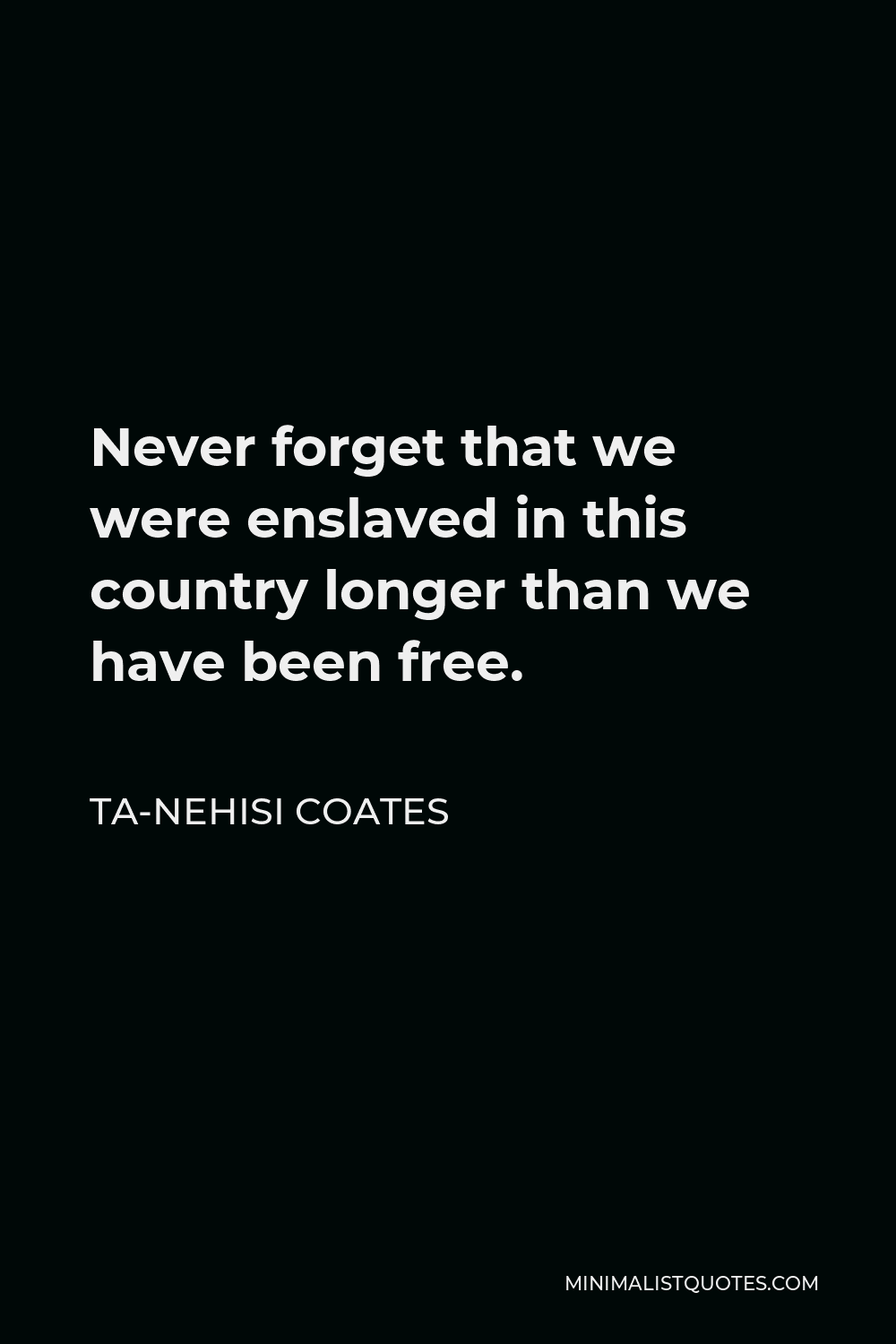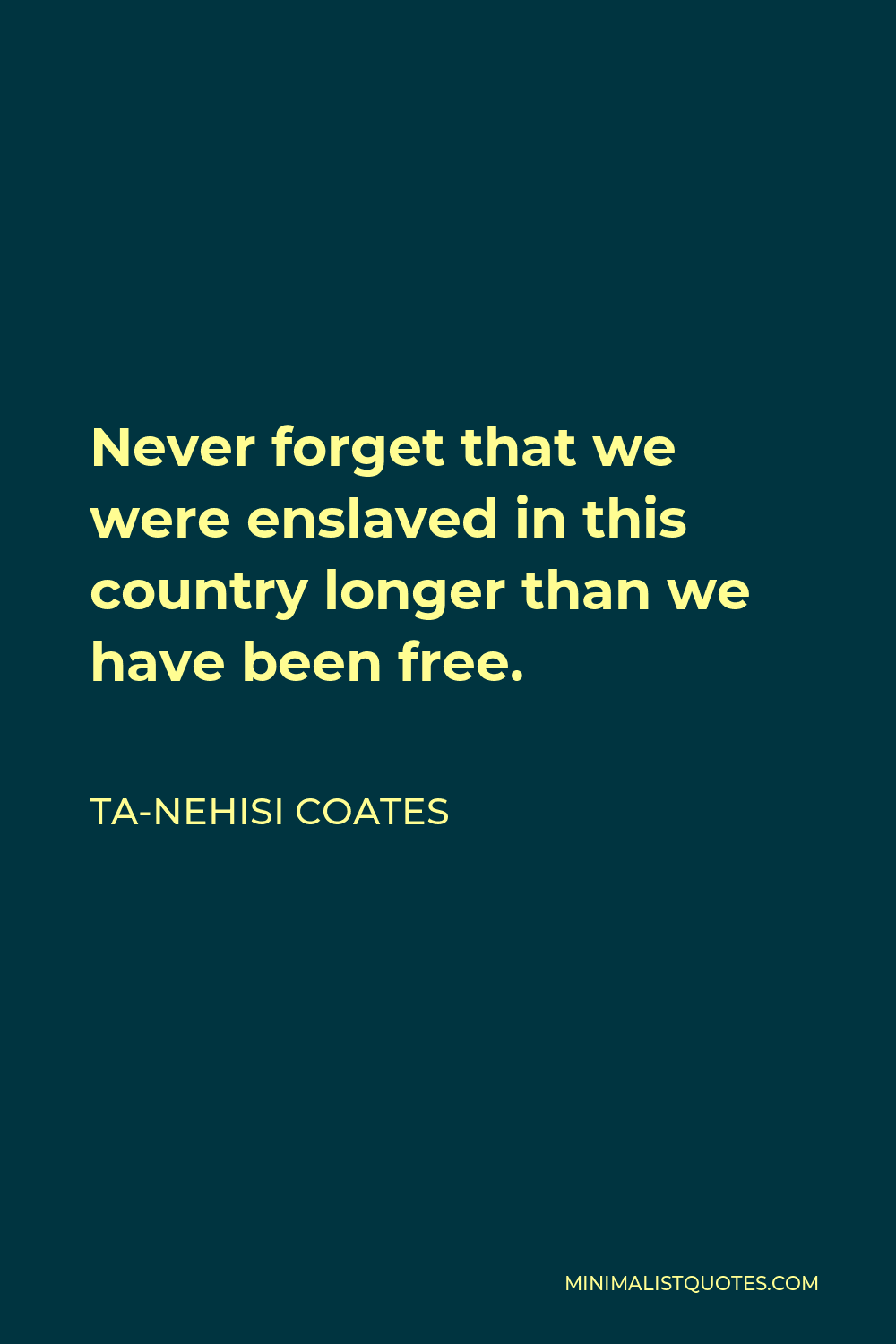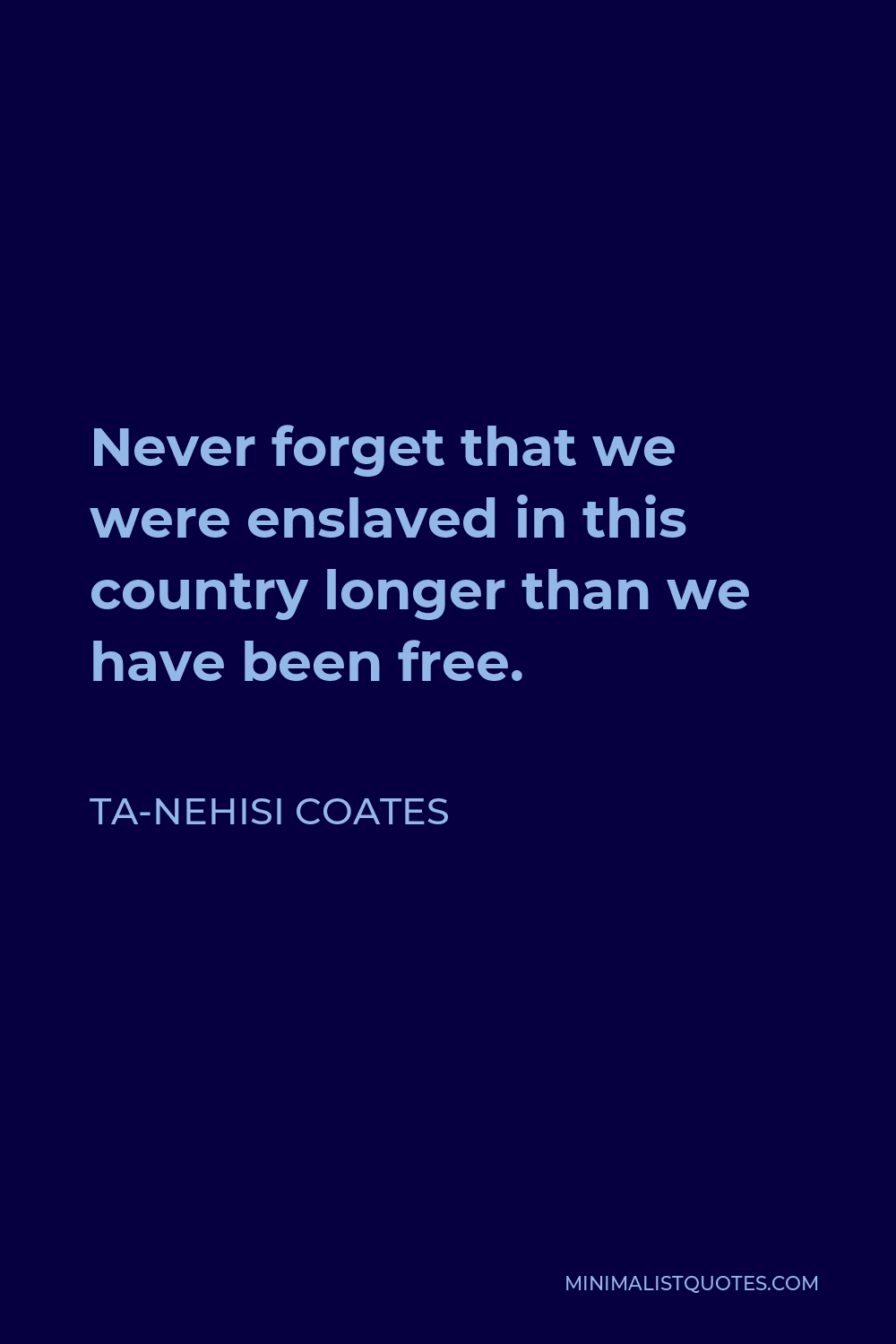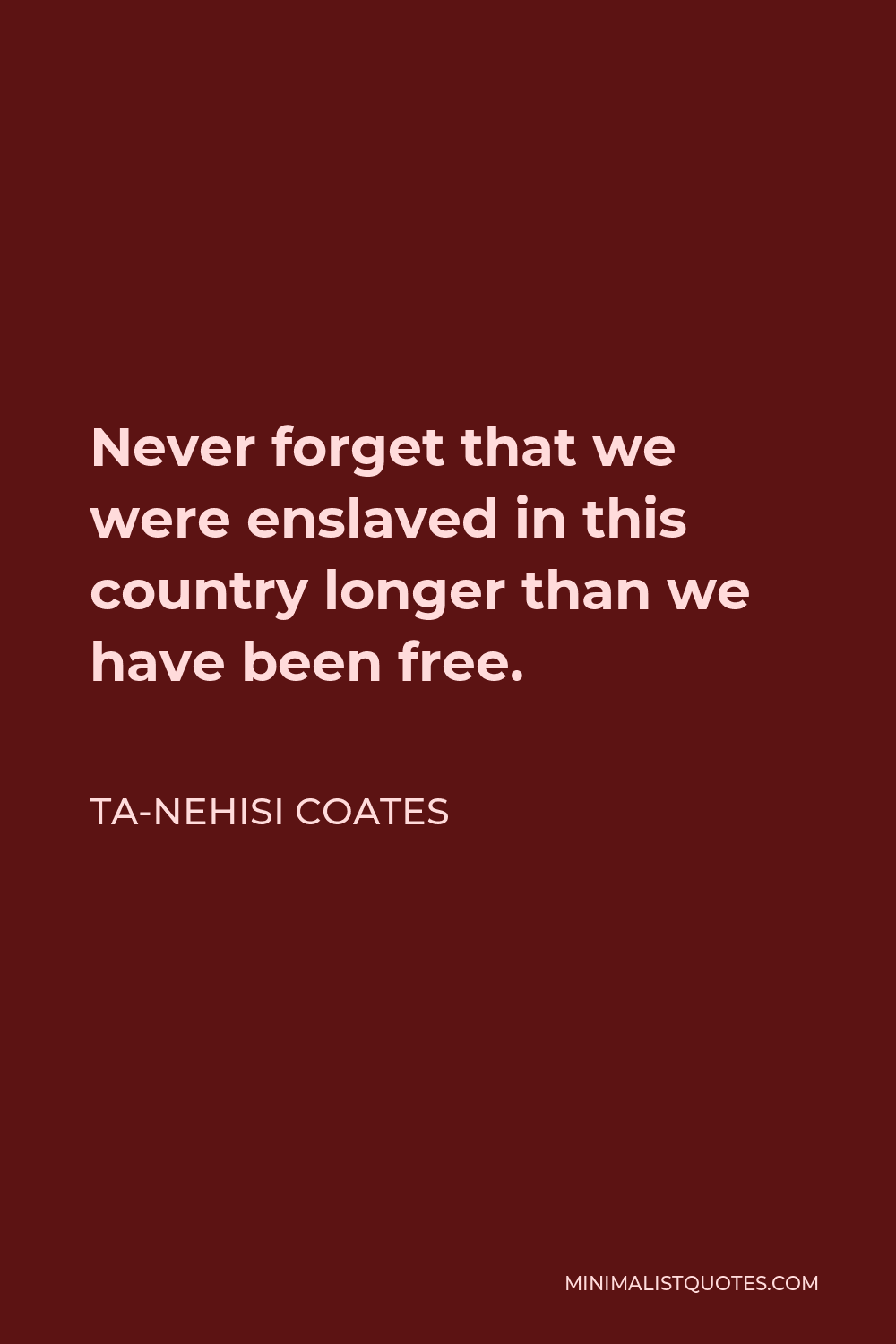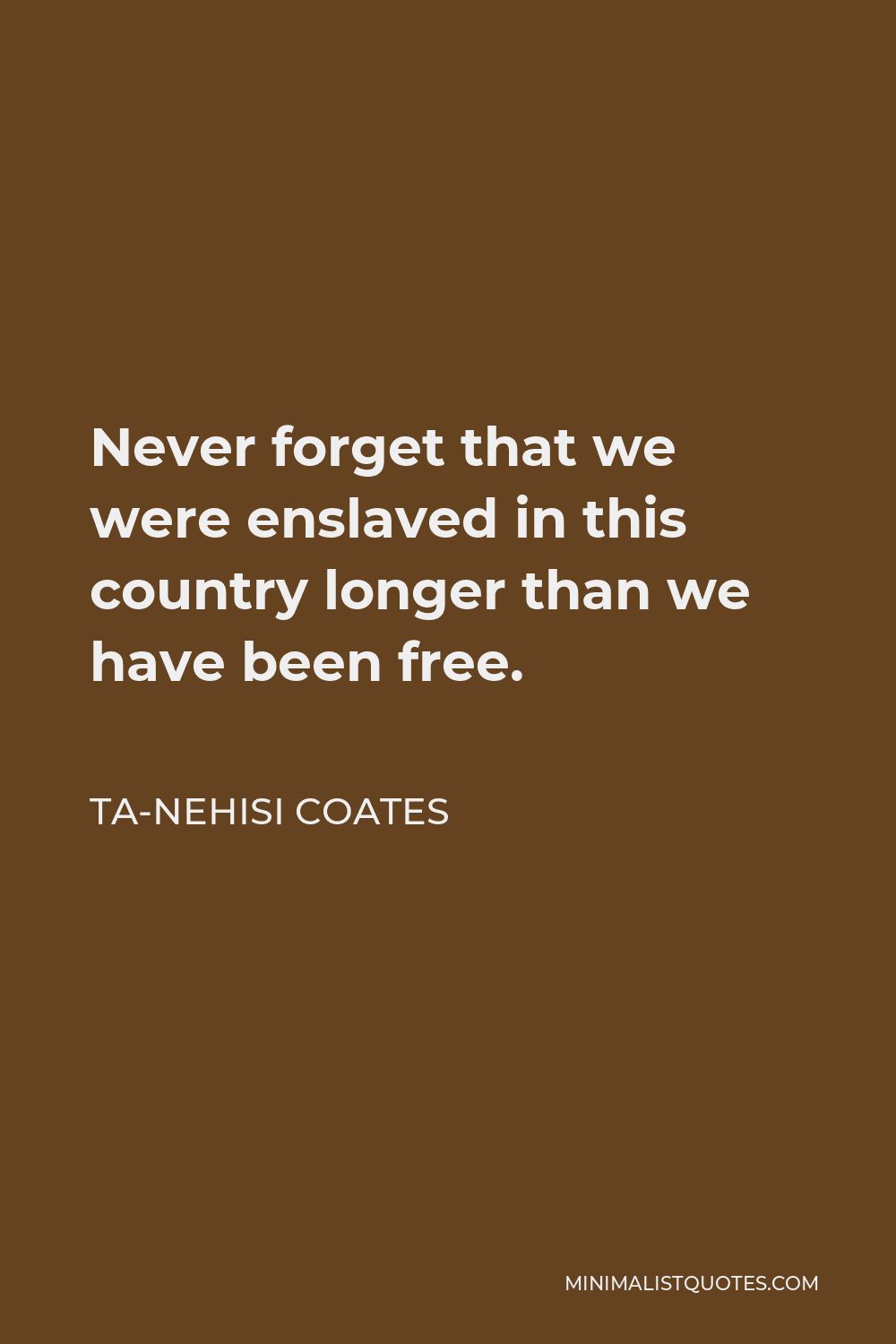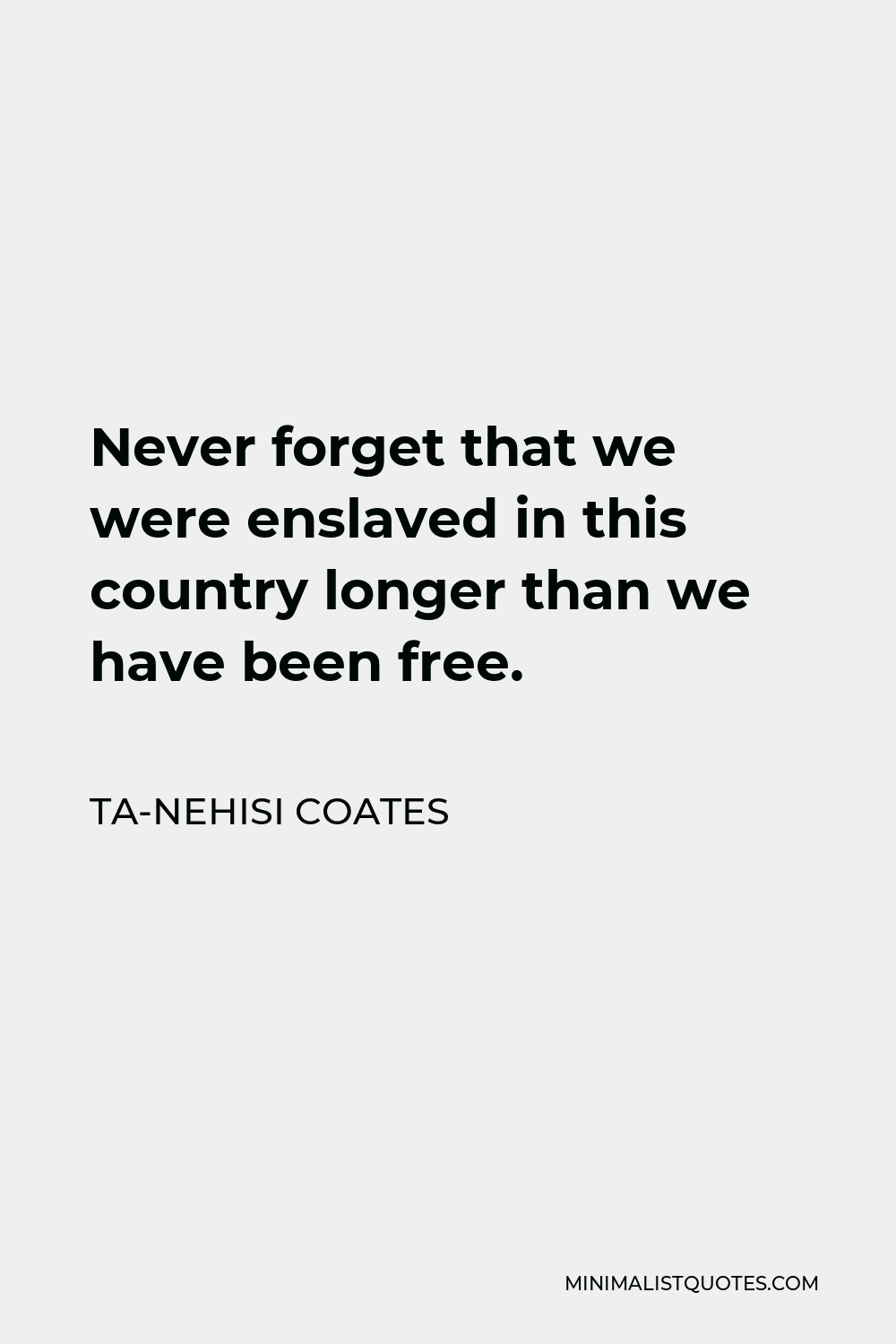[Barack Obama] grew up in Hawaii, far, far removed from the most, you know, sort of violent, you know, tendencies of Jim Crow and segregation. He wasn’t directly exposed to that. He was untraumatized.
TA-NEHISI COATESNever forget that we were enslaved in this country longer than we have been free.
More Ta-Nehisi Coates Quotes
-





![Ta-Nehisi Coates Quote - [Barack Obama] grew up in Hawaii, far, far removed from the most, you know, sort of violent, you know, tendencies of Jim Crow and segregation. He wasn’t directly exposed to that. He was untraumatized.](https://minimalistquotes.com/wp-content/uploads/2022/10/barack-obama-grew-up-in-hawaii-far-far-removed-fro-683x1024.jpg)

-







The greatest reward of this constant interrogation, confrontation with the brutality of my country, is that it has freed me from hosts and myths.
TA-NEHISI COATES -





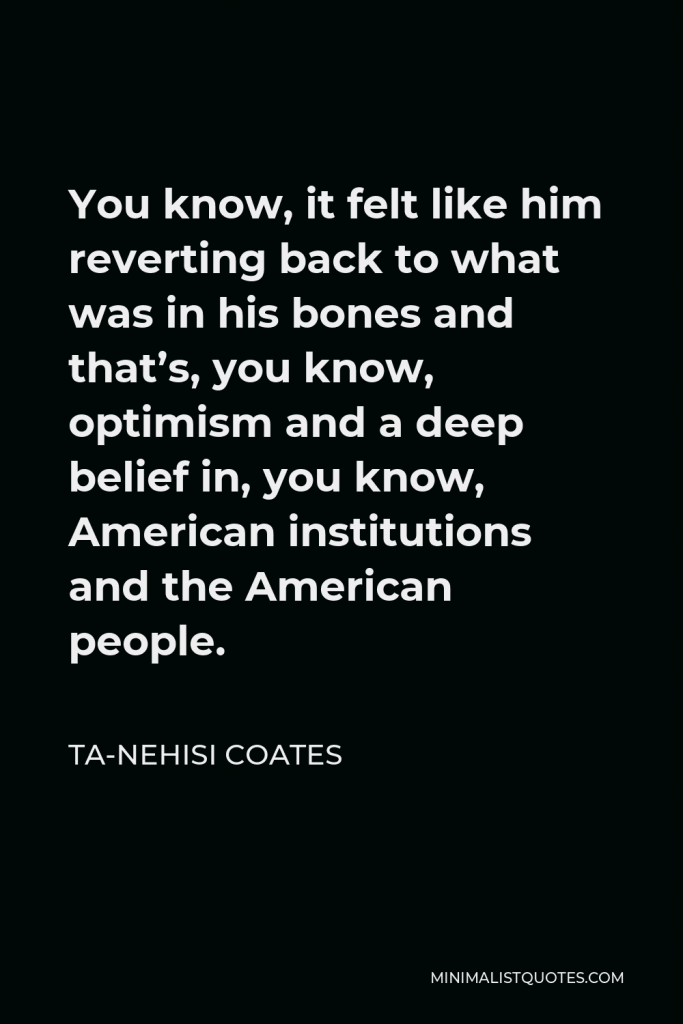

You know, it felt like him reverting back to what was in his bones and that’s, you know, optimism and a deep belief in, you know, American institutions and the American people.
TA-NEHISI COATES -





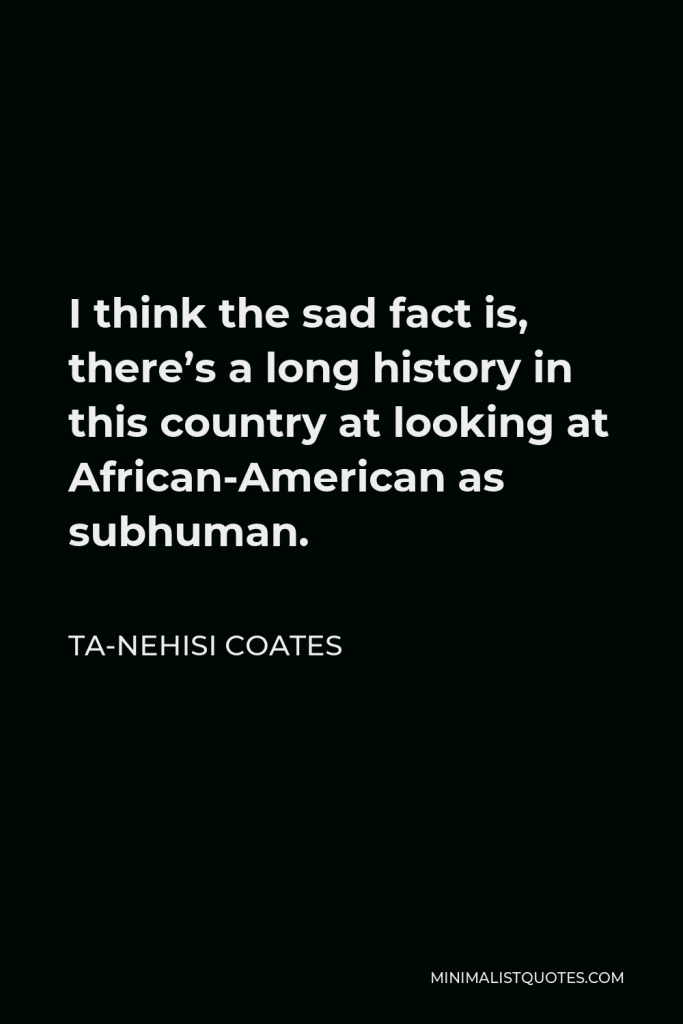

I think the sad fact is, there’s a long history in this country at looking at African-American as subhuman.
TA-NEHISI COATES -







I mean, the president, you know, at one point when he was campaigning said I believe that Donald Trump was not qualified to run a 7-Eleven.
TA-NEHISI COATES -





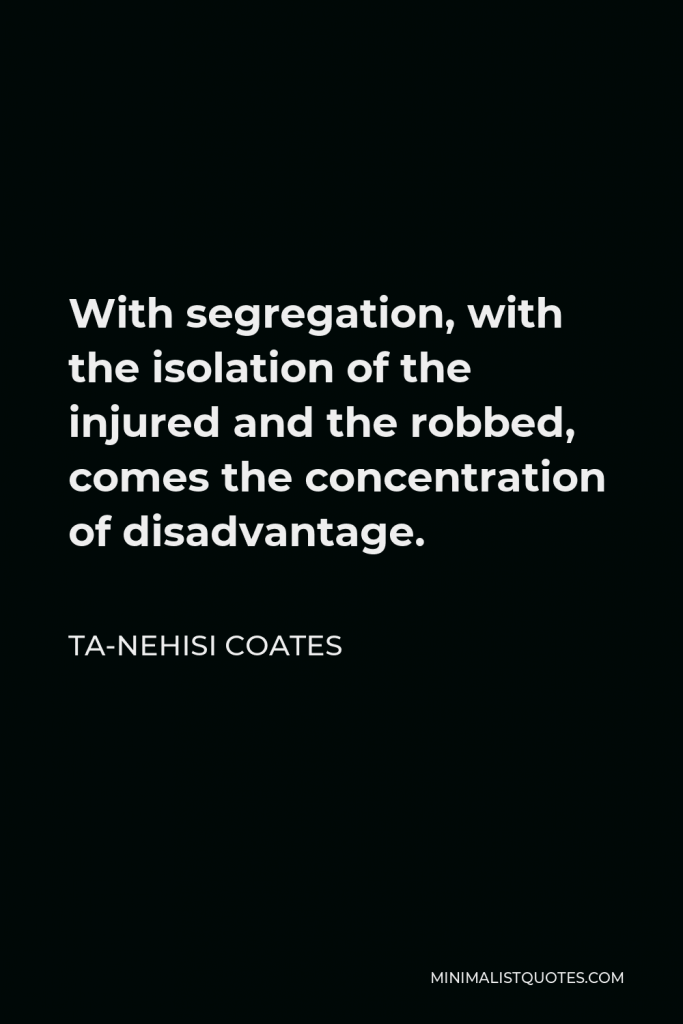

With segregation, with the isolation of the injured and the robbed, comes the concentration of disadvantage.
TA-NEHISI COATES -





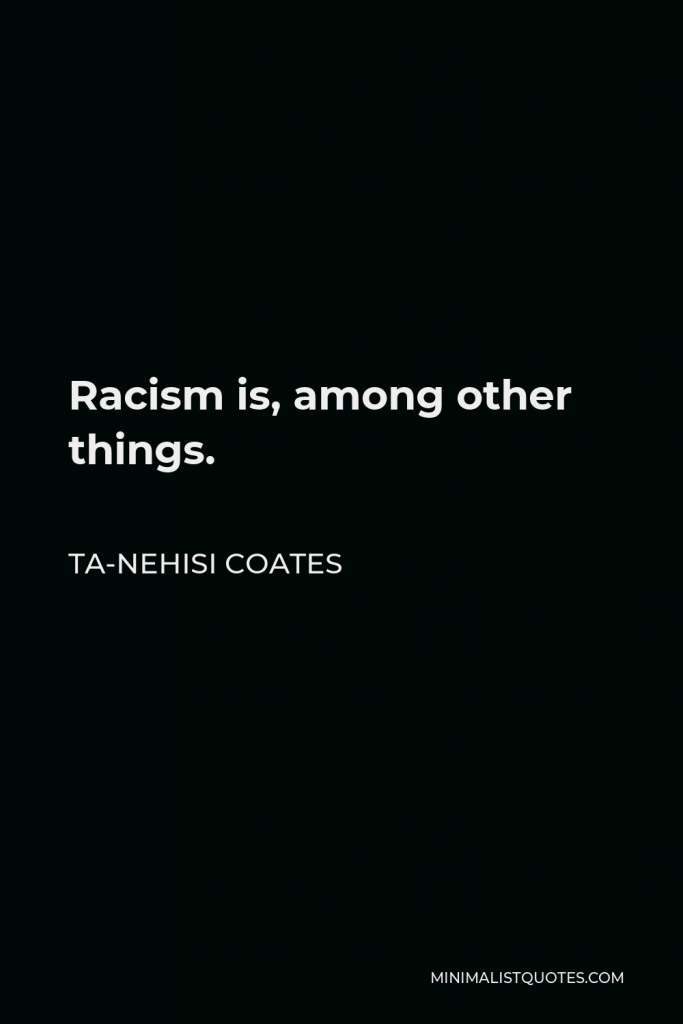

Racism is, among other things.
TA-NEHISI COATES -





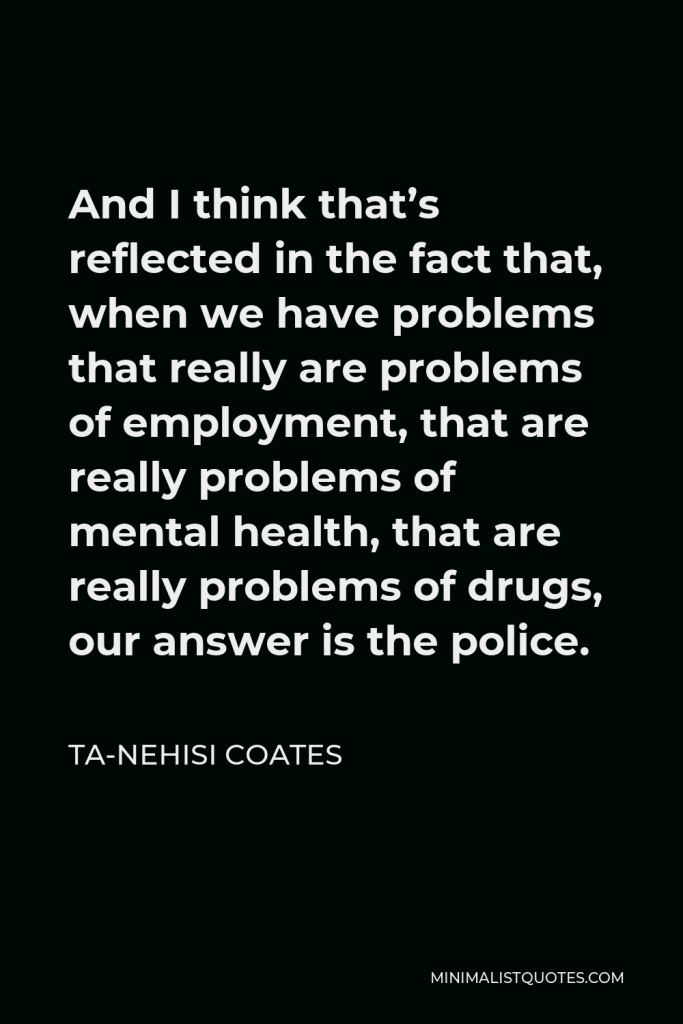

And I think that’s reflected in the fact that, when we have problems that really are problems of employment, that are really problems of mental health, that are really problems of drugs, our answer is the police.
TA-NEHISI COATES -





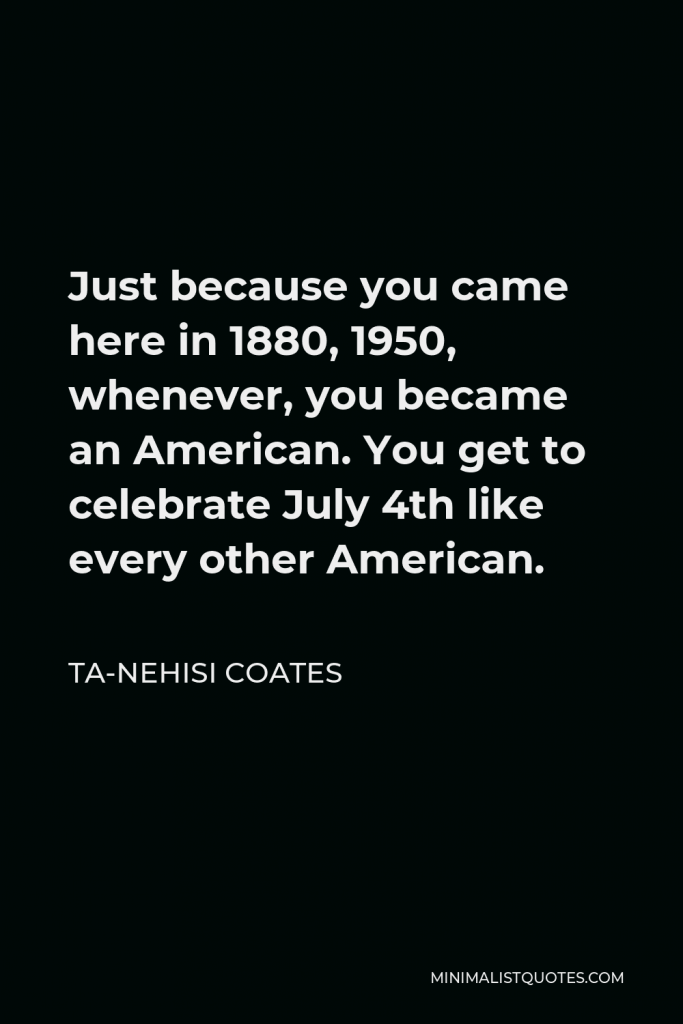

Just because you came here in 1880, 1950, whenever, you became an American. You get to celebrate July 4th like every other American.
TA-NEHISI COATES -





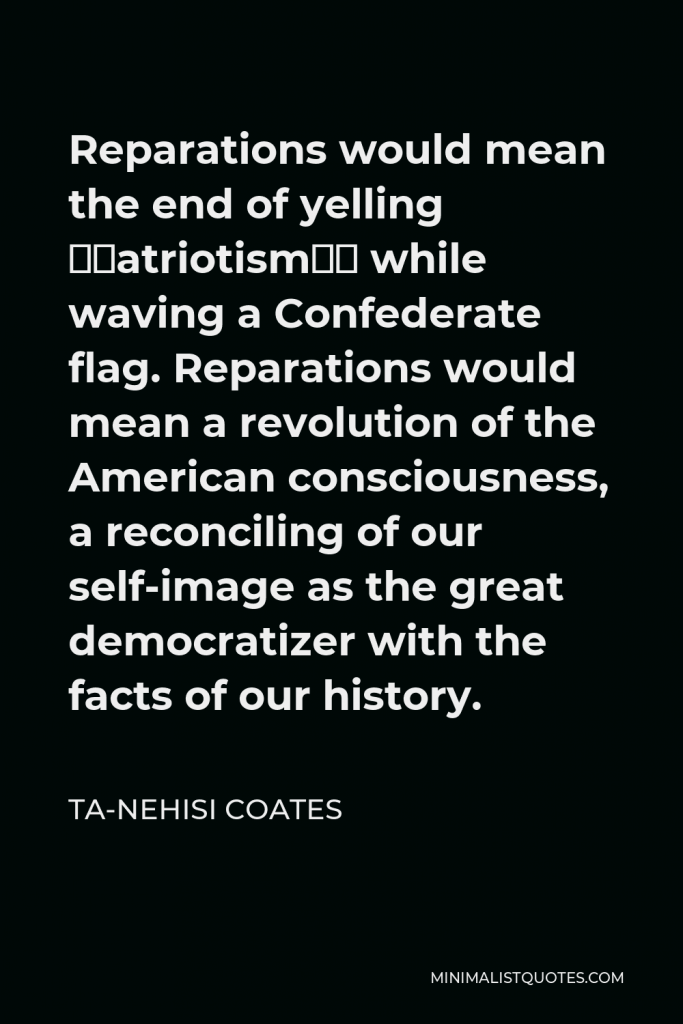

Reparations would mean the end of yelling “patriotism” while waving a Confederate flag. Reparations would mean a revolution of the American consciousness, a reconciling of our self-image as the great democratizer with the facts of our history.
TA-NEHISI COATES -







I was a black boy at the height of the crack era, which meant that my instructors pitched education as the border between those who would prosper in America, and those who would be fed to the great hydra of prison, teenage pregnancy and murder.
TA-NEHISI COATES -





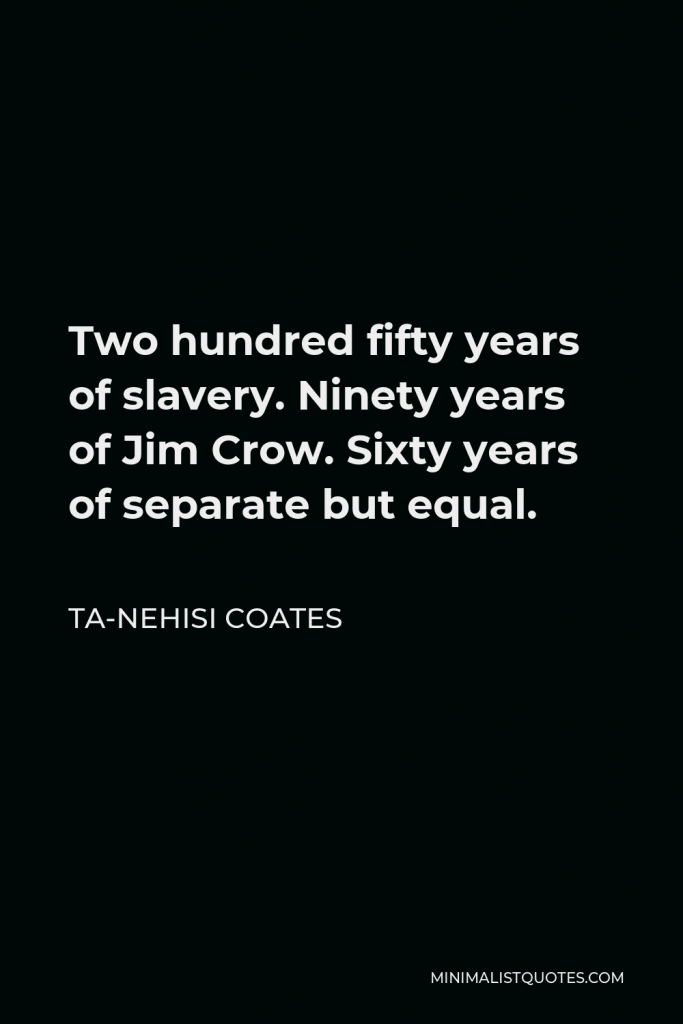

Two hundred fifty years of slavery. Ninety years of Jim Crow. Sixty years of separate but equal.
TA-NEHISI COATES -





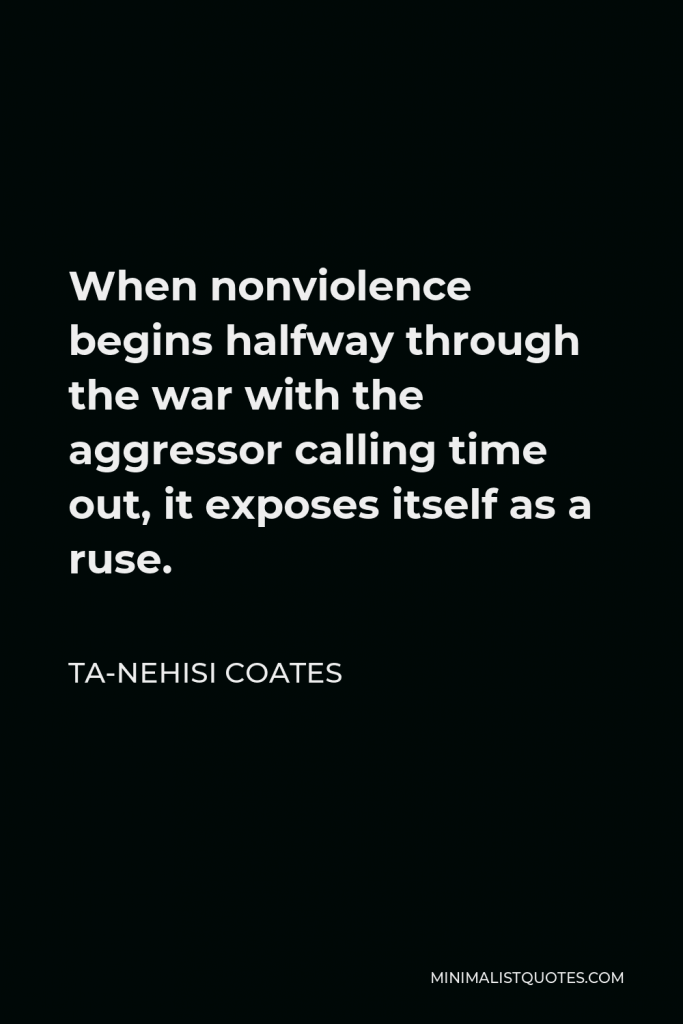

When nonviolence begins halfway through the war with the aggressor calling time out, it exposes itself as a ruse.
TA-NEHISI COATES -





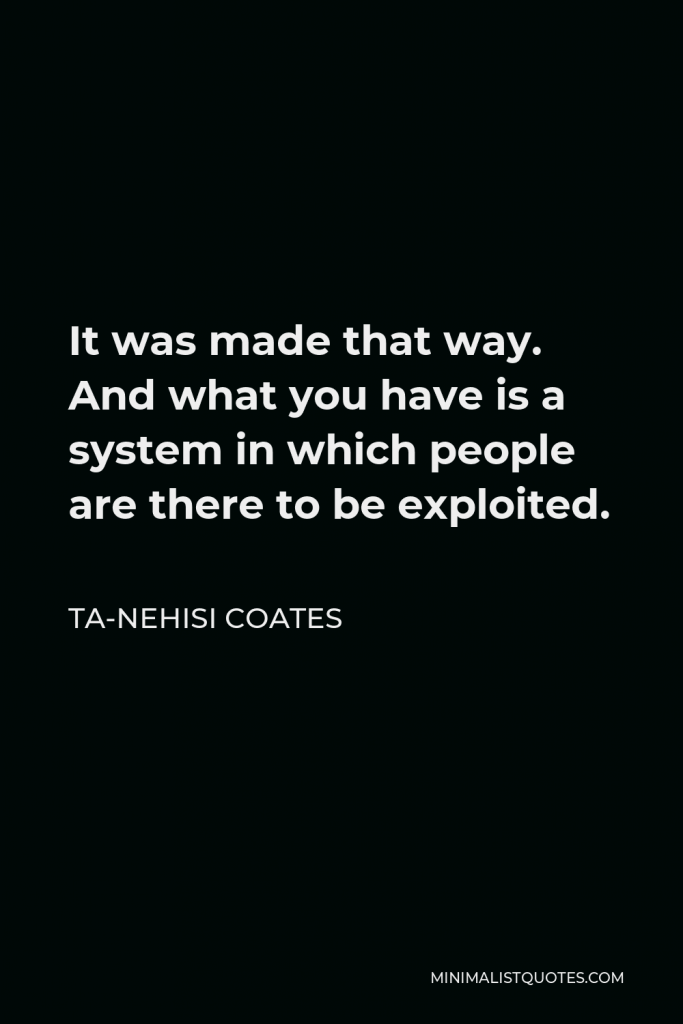

It was made that way. And what you have is a system in which people are there to be exploited.
TA-NEHISI COATES -





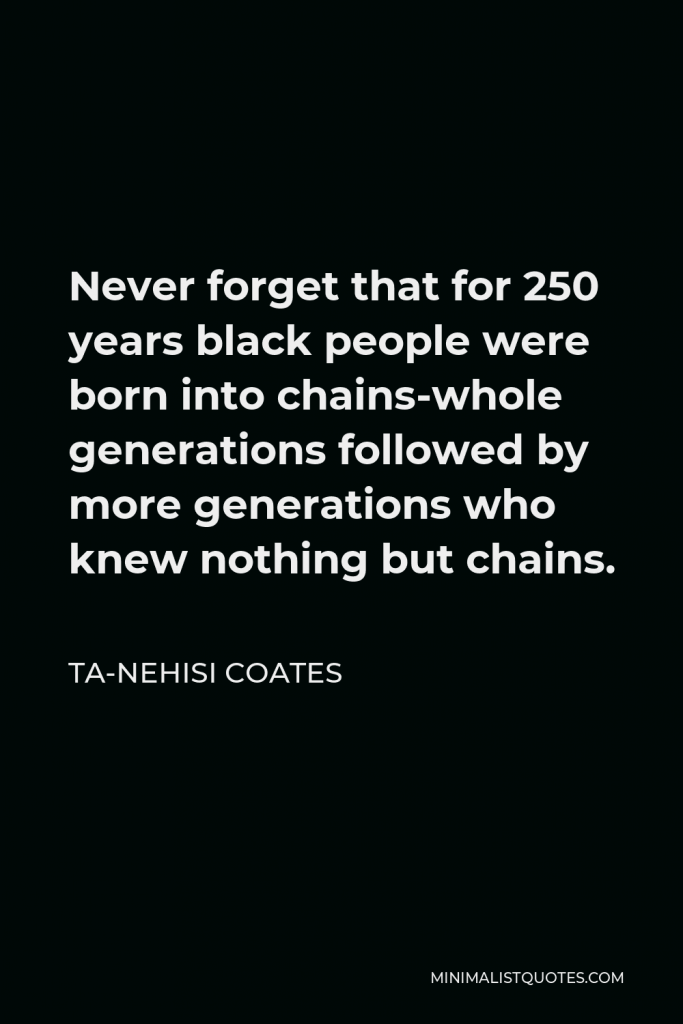

Never forget that for 250 years black people were born into chains-whole generations followed by more generations who knew nothing but chains.
TA-NEHISI COATES -





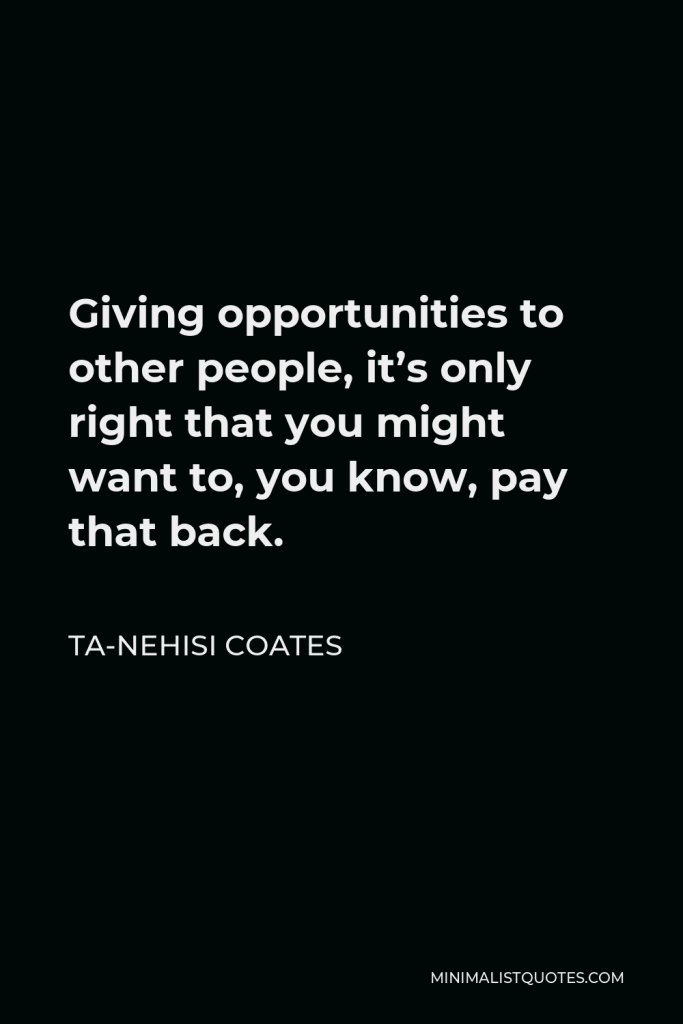

Giving opportunities to other people, it’s only right that you might want to, you know, pay that back.
TA-NEHISI COATES
